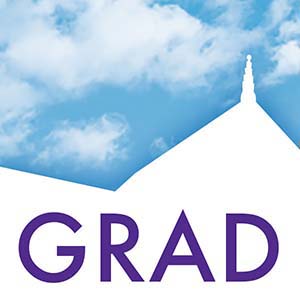January 26, 2024
K-State Libraries announce schedule for spring graduate workshop series

Join K-State Libraries for The Library and Your Research, a free workshop series co-sponsored by the Graduate Student Council that helps graduate students enhance and professionalize their scholarly pursuits.
Each Monday session takes place from 1:30-2:30 p.m. via Zoom. Participants must register online to attend the workshops.
• Jan. 29: "Starting Your Literature Review in Social Sciences and Education." Are you preparing a literature review for a paper, article, thesis or dissertation? This workshop will help. Learn why a literature review is important, how to use K-State Libraries' databases to select articles, how to evaluate the articles and how to organize the review. For this session, article searching will be demonstrated using social sciences and education databases; however, the concepts will be applicable to all disciplines.
• Feb. 5: "Managing Citations and References Using Zotero." Citations and references, while essential to research and publishing, also consume a lot of valuable time to store, organize and format. This hands-on workshop will focus on Zotero, a free tool that works on machines running Windows, MacOS, iOS, or Linux. Participants will set up a free account and learn many skills such as adding and organizing documents, creating in-text citations and references-cited lists, and highlighting and annotating pdfs.
• Feb. 12: "Getting the Most Out of Google Scholar and Scopus." Research is becoming increasingly interdisciplinary; your search strategies should be as well. Google Scholar and Scopus are two of the largest and most popular multidisciplinary databases for discovering journal articles, conference proceedings and book chapters. Attend this session to learn how to improve the quality of your search results through advanced techniques such as proximity searching, stemming, field searching and citation tracing. You will also learn how to use Scopus to discover researchers by topic and examine the scholarly output of specific institutions.
• Feb. 19: "Starting Your Literature Review in the Sciences." Are you preparing a literature review for a paper, article, thesis or dissertation in the sciences? This workshop will help. Learn why a literature review is important, how to use K-State Libraries' databases to select articles, how to evaluate the articles and how to organize the review. For this session, article searching will be demonstrated using PubMed, Web of Science and other science databases; however, the concepts will be applicable to all disciplines.
• Feb. 26: "Intro to Survey Design." Surveys are a critical element of research in the social sciences and beyond. If you're planning survey research but you aren't sure where to start — or if you're looking for a new perspective on your existing research — this workshop is for you. Our goal for the workshop will be to provide an understanding of what skills are required to conduct strong survey research and provide a foundation for participants to develop those skills. Together, we'll explore the basics of writing a strong survey, building a sample, recruiting participants and analyzing your results.
• March 4: "AI Tools for Literature Reviews." Fun? Can literature reviews be fun? With AI tools such as Scite, SciSpace, Perplexity, Scholarcy and Research Rabbit, the answer is yes, if you use them appropriately. In this workshop, you will learn to augment traditional discovery methods quickly and easily by visualizing relationships among articles, finding articles based on similarity, and summarizing and extracting information of interest.
• March 18: "Finding Social Sciences Data Sets." Are you looking for existing data sets for a paper, thesis or dissertation? Learn about the social sciences data sets available to you through K-State Libraries subscriptions and other free, high-quality data sources. This hands-on workshop will demonstrate strategies for locating social sciences data, with an emphasis on the ICPSR data archive.
• March 25: "Evidence Synthesis: An Overview for Non-health Sciences Researchers." Evidence synthesis refers to a range of methods researchers use to identify, analyze and synthesize the results of multiple studies. Learn about types of evidence synthesis, such as scoping reviews and systematic reviews, and the steps involved in an evidence synthesis project. Librarians who work with social sciences will discuss what you should know before embarking on an evidence synthesis project.
• April 1: "Copyright, Your ETDR and Publishing." Writing and publishing your scholarly work can be both exciting and daunting. This workshop will provide a crash course on the fundamentals of copyright law to help you create and share your work. We will explore how to reuse the works of others legally and ethically and share tools to help you find material you can reuse in your ETDR or other RSCAD work. We will cover how to read and interpret publishing and copyright assignment agreements. Finally, you will learn how to share your work with the world and increase your impact.
• April 8: "Developing Your Scholarly Identity." Looking to kickstart or strengthen your scholarly online presence? This workshop will explore the fundamentals of scholarly identity management. We will tour and delve into tools like Google Scholar and ORCiD and demonstrate how to create your unique profiles. We'll provide a quick overview of the pros and cons of metrics like citation and alt-metrics. Finally, we will cover ways you can share or represent your work through different platforms.
• April 15: "After Graduation: Accessing Research on the Job." Are you graduating soon? As you transition from K-State, your access to library resources will change. This workshop will review library privileges for alumni and introduce you to research sources available in the future.
Questions? Contact Laura Bonella, head of academic services.
